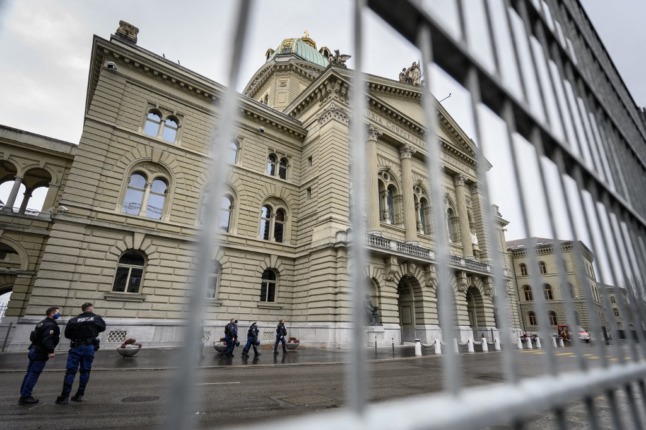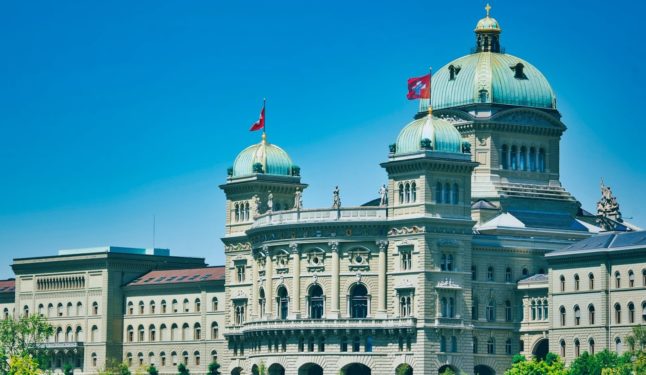The law provides the legal basis for the so-called Covid certificate to indicate that a person has been vaccinated or has recovered from the disease.
Opponents claimed the certificate, which has been required since September for access to restaurants and other indoor spaces and activities, is creating an “apartheid” system.
Final results showed 62 percent supported the law in a contest that saw voters surge to fill in their ballots.
The 65 percent turnout was the fourth-highest since women were granted the vote in 1971, in a country where the average referendum turnout is 46 percent.
A majority voted against the law in just two of the 26 Swiss cantons, with the highest support levels registered in Basel City and Zurich.
The referendum came as the new Covid-19 variant Omicron, classified as a variant of concern by the World Health Organisation, shook countries and markets around the world.
READ ALSO: EU health agency says Omicron variant poses ‘high to very high’ risk to Europe
The vote also came at a time when the numbers of new Covid-19 cases in Switzerland were more than seven times higher than they were in mid-October.
The below chart from Our World in Data shows the pattern of case numbers since the pandemic began, as well as how cases in Switzerland compare with those in its neighbouring countries.

Pass used in restaurants
The Covid Act, which grants the federal government broad powers to manage the pandemic, was already passed by a previous referendum on June 13th.
On Sunday, the voters were called to weigh in on the version of the law revised by parliament on March 19th relating to the Covid certificate, which Switzerland started to issue on June 7th to people who have been fully vaccinated, recovered from coronavirus, or tested negative for the disease.
READ ALSO: Reader question: How long is Switzerland’s Covid certificate valid for?
As in much of Europe, Switzerland has seen growing anger over restrictions aimed at reining in the pandemic, and pressure to get vaccinated.
But in a country where referendums take place every few months in a climate of civility and measured debate, the soaring tensions around the vote came as a shock.
Under Switzerland’s direct democracy system, votes are typically held four times a year on a range of subjects. Citizens can propose new initiatives, or trigger referendums on government policy by gathering enough signatures, as happened on the Covid certificate law.
Police upped security around several politicians who have faced a flood of insults and even death threats, including Health Minister Alain Berset.
The right-wing populist Swiss People’s Party (SVP) — the biggest in the wealthy Alpine nation — was the only party that opposed the Covid law and the latitude it gives the government to act.
“The eyes of the whole world are on Switzerland. We are the only ones in the world to have the right to speak out on the management of the crisis, on the future of our freedoms,” SVP lawmaker Jean-Luc Addor told public broadcaster RTS.
He said the response to the pandemic was dividing society by vaccination status.
“Here we are talking about 40 percent of the population who disagree with official policy… who no longer trust the authorities,” Addor said.
Cowbell protests
The campaign saw repeated protests, often led by the so-called “Freiheitstrychler”, or “Freedom ringers” — men dressed in white shirts embroidered with edelweiss flowers and with two large cowbells suspended from a yoke resting on their shoulders.
Some of the demonstrations led to violent clashes with police, who used rubber bullets and tear gas to rein in the crowds.
The police fenced off the seat of government and parliament in Bern on Sunday in anticipation of protests, though few people had gathered in the square in front by sunset.
Claude Longchamp, one of Switzerland’s top political scientists, said it was the first time that the Federal Palace had been sealed off on polling day.
Michelle Cailler, a spokeswoman for the Friends of the Constitution group which opposed the law, said that granting such powers to the government was “extremely dangerous for democracy”.
“What is very embarrassing is that this law violates a number of constitutional rights, and in particular Article 10 on personal freedom with this Covid certificate, which establishes a disguised mandatory vaccination,” she told AFP after the vote.
“So it’s extremely shocking for a country like Switzerland.”
As for violence surrounding the vote — which her group does not condone, she said: “The government should ask itself if it is not responsible for any possible excesses, by pushing people to the limit with coercive measures which have extremely serious collateral damage — much worse than this epidemic — and well, maybe that pushes people to have over-the-top reactions.”
In the Sunday newspapers, Swiss President Guy Parmelin urged more people to come forward to get vaccinated.
Some 67 percent of the Swiss population is fully immunised, with a further two percent having had the first of two doses.
A Link Institute survey of 1,300 people, for SonntagsBlick newspaper, found that 53 percent were in favour of mandatory vaccination.



 Please whitelist us to continue reading.
Please whitelist us to continue reading.
Member comments